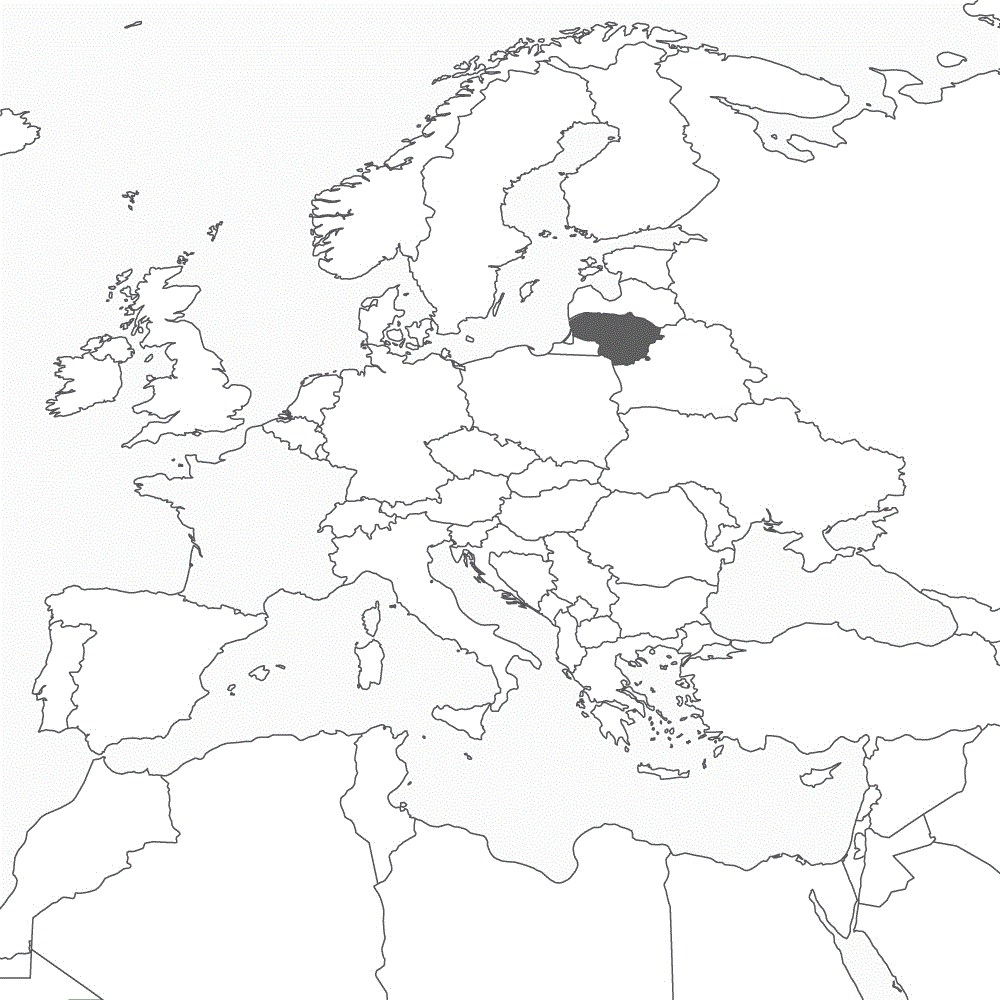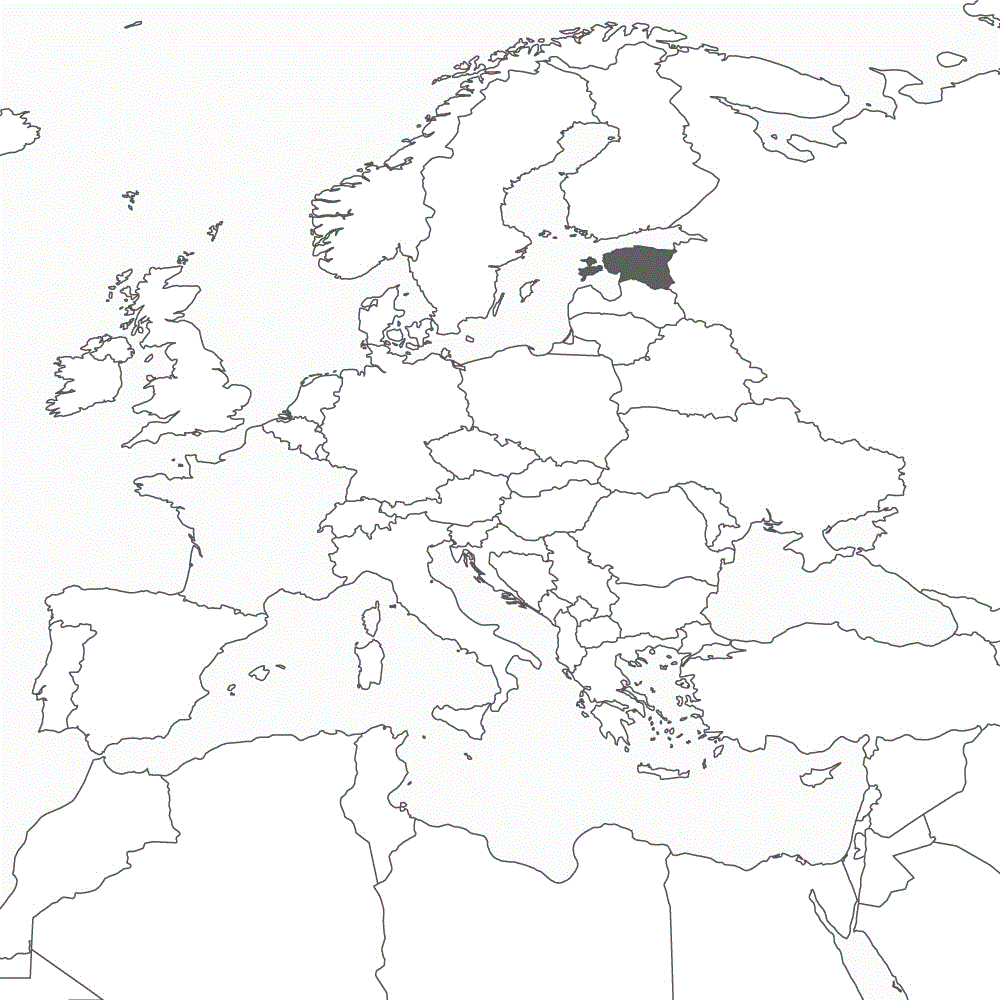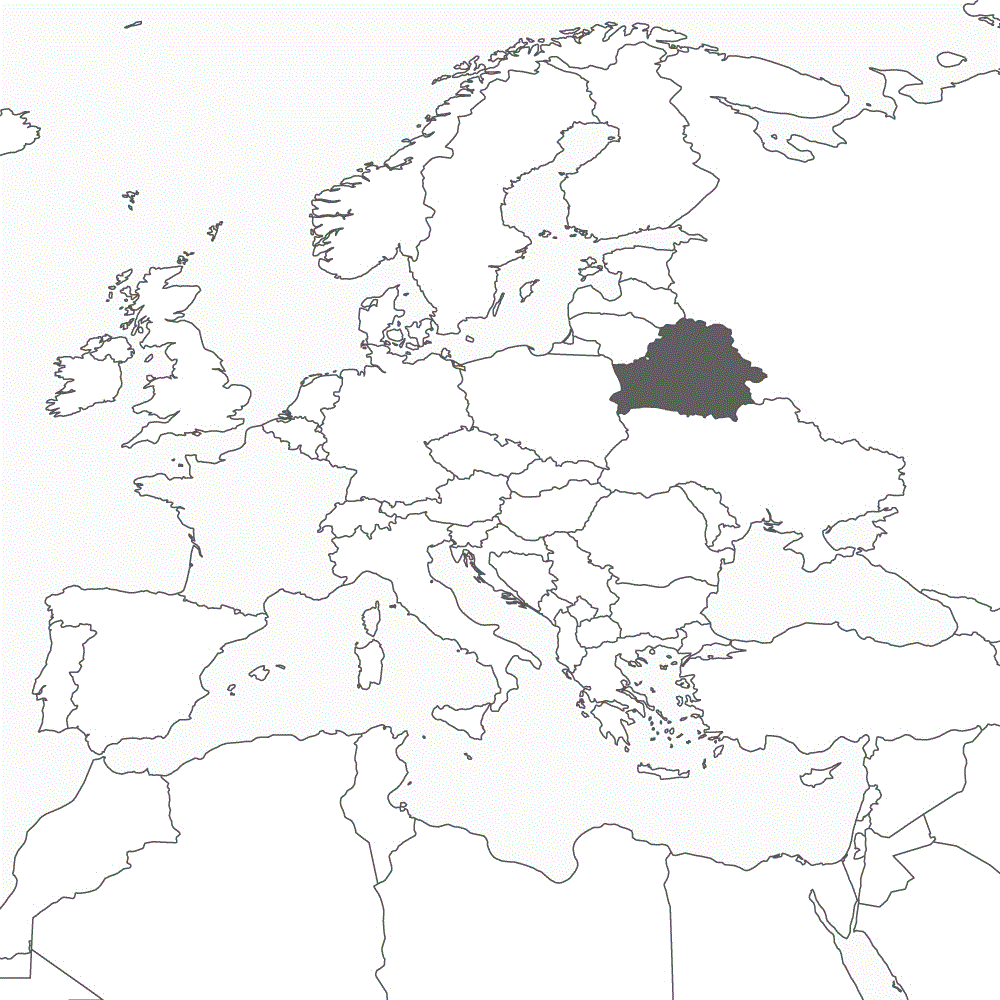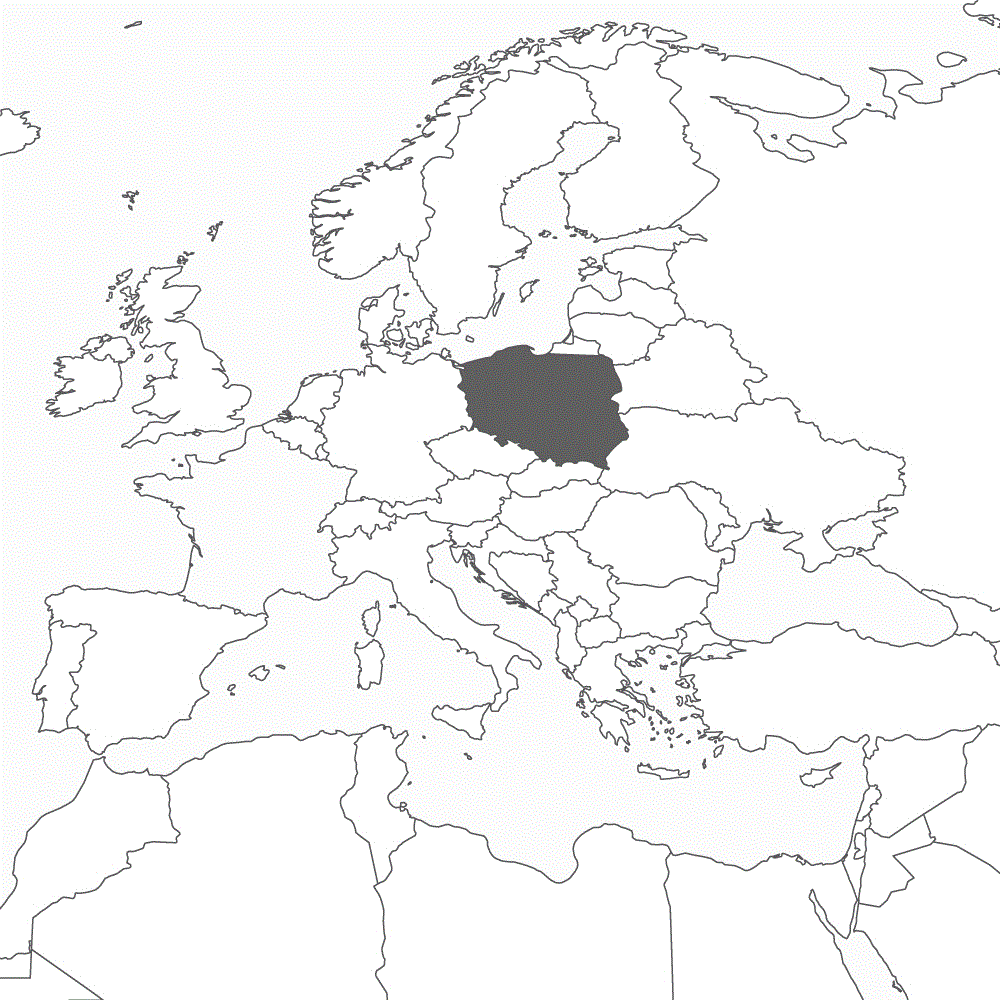A New Era
Berlin celebrates the formal commissioning of the Lithuanian Brigade with a military roll call. Merz and Pistorius seize the opportunity of the first permanent German military base in Eastern Europe to accuse Russia of revisionism.
BERLIN/VILNIUS (own report) – On May 22, Germany celebrated the formal commissioning of its Lithuanian Brigade, with a ceremonial military roll call in the Lithuanian capital Vilnius. On paper, this brigade has existed as a Bundeswehr unit since April 1. Berlin intends to station a total of 5,000 soldiers in Lithuania by 2027. Germany’s Minister of Defense, Boris Pistorius had announced intensive maneuvers for next year. The German government additionally plans to integrate the German commanded NATO multinational battlegroup into the Lithuanian Brigade and thereby into the Bundeswehr command structure. In his speech in Vilnius, Merz reiterated that Germany will do everything to become the strongest military power in Europe. In the Lithuanian capital, both the German chancellor and the minister of defense accused Russia of aggressive revisionism – of all things, during the military roll call commissioning the Bundeswehr’s first permanent foreign base, on territory that had once been the Soviet Union – and in the immediate vicinity of Russia’s border. Read more
Shared Legacy
With no comment, Berlin is stationing German soldiers of the future Lithuanian brigade near the site of the World War II extermination site of Jews – with no effort to commemorate the victims of the Shoah and the German war of extermination.
BERLIN/NEMENČINĖ (Own report) – Berlin is stationing a unit of the future Lithuanian brigade in Nemenčinė just two kilometers away from the site where Germans and Lithuanians massacred a large segment of the town's Jewish population in the fall of 1941. The massacre of Nemenčinė was an aspect of the systematic mass murder carried out by the Germans and their Lithuanian collaborators ln the extermination of the Jews of the Lithuanian province. Prior to the German invasion, Lithuania had been a supra-regional hub of Jewish culture. A few months later, it was “judenfrei” (free of Jews). Less than five percent of the local Jewish population survived German occupation of Lithuania. Commemorating and acknowledging the shared historical guilt play no role in the German-Lithuanian cooperation that, over the past few years, has again grown stronger. On the contrary: the culprits are still today being publicly honored in Vilnius. Within the framework of the deployment of the Lithuanian brigade, Berlin has made no effort, until now, toward commemorating the systematic slaughter of Lithuanian Jews, for example, on the anniversary of the Nemenčinė Massacre. With its silence, it is helping to conceal the reality of Germany’s war of annihilation against the Soviet Union. Read more
Come a long way
As Berlin and Vilnius finalise an agreement on permanently stationing a German brigade in Lithuania, Germany underpins its claim to be the leading military power in the Baltic.
BERLIN/VILNIUS (own report) – The Lithuanian parliament, the Seimas, ratified an agreement last Thursday between Berlin and Vilnius on the permanent stationing of several thousand German soldiers in Lithuania. The defence ministers of both countries agreed the arrangements back in mid-September, thus preparing the legal framework for the Bundeswehr’s so-called Lithuania Brigade. The further growth and strengthening of this force essentially depends on two factors: the progress of German recruitment and the completion of the necessary infrastructure in Lithuania, which will include a 170-hectare military training area in Rūdninkai. The Ministry of Defence in Vilnius is reporting a comprehensive set of targets for the country’s militarisation. It is looking to establish a new armoured division of the Lithuanian armed forces, to boost military spending still further, to accelerate the arms build-up, and to realise its “concept of total defence”. The plans will enable German defence companies to expand their activities in Lithuania. The stationing of a Lithuanian Brigade is seen as a major success for Germany in terms of power politics. Berlin is consolidating its position and pushing ahead with its ambition to play a leading military role in the Baltic region. Read more
At the Center of the Risk of Escalation
At its summit, NATO positions itself against Russia. Lithuania, the Bundeswehr’s priority partner nation, is geostrategically exposed and faces a particular risk of escalation.
BRUSSELS/VILNIUS/BERLIN (Own report) – NATO declares Russia to be “the most significant and direct threat” and orients its new force model on ramping up military forces at its eastern flank, according to the new Strategic Concept and force model adopted by the heads of states and governments of the western military pact at yesterday’s summit in Madrid. In addition, the number of high readiness forces will be increased from 40,000 to well over 300,000. The individual armed forces will also be assigned to fixed areas of operations in the event of war. According to the current state of discussion, the Bundeswehr would be primarily responsible for Lithuania. That country is geostrategically exposed, because its southern region lies between Belarus and the Russian exclave Kaliningrad. Moreover, its government is extremely provocative, as its behavior in conflicts with China and Russia demonstrates. This increases risks of escalation – not least of all for the Bundeswehr. Read more
“Welcome to Guantanamo!”
Amnesty International decries mistreatment of refugees in Lithuania and racist discrimination of non-white versus Ukrainian refugees; speaks of “torture.”
VILNIUS/WARSAW/BRUSSELS (Own report) – Lithuanian border officials and camp guards regularly mistreat non-white refugees and violate international law with their procedures. This is documented in a report published today by Amnesty International. According to this report, refugees were pushed into a river of chest high water as they were illegally forced back toward Belarus at the Lithuanian border. Others were maltreated with sticks and tasers. According to Amnesty, living conditions in Lithuania’s detention centers “amount to torture.” The organization particularly decries the discrimination of non-white versus Ukrainian refugees, who are welcomed with open arms. Non-white refugees, however, are additionally exposed to blatant racism at the borders and in the detention camps. Amnesty had already described similar conditions in Poland back in April. According to Amnesty, the EU and particularly the EU Commission under the leadership of its German President Ursula von der Leyen, are co-responsible: Brussels supports the border closures, while de facto tolerating mishandling and violations of international law at its borders. Read more
The Commemoration of the "Defenders"
In the Baltic, German Foreign Minister Annalena Baerbock promotes the formation of the West in opposition to Russia and commemorates the “victims of communism,” but not Baltic victims of Nazism.
BERLIN/RIGA/TALLINN/VILNIUS (Own report) – In the shadow cast by the militarist formation of the West in opposition to Russia, signs are emerging of a shift in Berlin’s official commemoration policy. This is emerging from Foreign Minister Annalena Baerbock’s schedule in the three Baltic countries, which began yesterday in Latvia. In addition to her talks with military authorities, in Estonia, today Baerbock intends to visit a monument for the victims of communism; however, no plans have been made for a visit to the victims of the Nazi occupiers and their Baltic collaborators, whose terror nearly wiped out the entire Jewish population. Out of deference to the Baltic countries, the German government has repeatedly abstained from voting in favor of UN General Assembly resolutions condemning the glorification of Nazism and its collaborators. Domestic Nazi collaborators are publicly honored in all three Baltic countries. Baerbock declared in the run-up to her trip, that above all the current issue is “defense” in face of Russia; “from the Baltic states, we can learn a lot”. Read more
Refugees Dying in No Man's Land (III)
More fatalities at EU's external border. With new sanctions, Brussels adds new instrument for warding off refugees. Poland and Baltic countries reinforce military activities at the eastern border.
BRUSSELS/WARSAW/MINSK (Own report) - Despite new fatalities in the no man's land at the Polish-Belarusian border, the German government is blocking assistance offers and prioritizing sanctions against Belarus over measures for combating the humanitarian crisis. It continues to ignore an offer by the city of Munich to accommodate refugees and grant them regular asylum procedures. Meanwhile, Foreign Minister Heiko Maas praises the decision to introduce a new instrument of sanctions, penalizing assistance to undesirable migration that he and his EU counterparts adopted yesterday. This includes sanctions against Belavia Airlines, because it transports refugees to Minsk. The EU, thus, has an additional instrument at its disposal for warding off future refugees. And Maas envisages even more sanctions against Belarus announcing, "we will now continue along this rigorous path." At the same time, eastern EU and NATO countries continue military activities at the Belarus border. Lithuania's foreign minister demands that a "no-fly-zone" be imposed on the Minsk Airport. Read more
Refugees Dying in No Man's Land
Push-backs of refugees will be discussed at the EU summit, which begins today. Fourteen member states are demanding EU funds to build meters high razor wire fences at EU's external borders.
BERLIN/BRUSSELS (Own report) - In violation of international law, the expansion of pushbacks at the EU's external borders and the construction of several meters high razor wire border installations are on the agenda of the EU summit, which begins today. Recent investigations provided video evidence that, on the one hand, the pushbacks at EU's external borders, which have been documented and criticized for years, have actually been implemented by regular police units with funding from Brussels. On the other hand, 14 EU members, including Poland and the Baltic states are demanding subventions for the fortification of their borders. Because Poland is illegally denying entry to refugees and is prohibiting access to the border area by aid organizations through declaring a state of emergency, at least seven refugees so far have died in the no man's land between Poland and Belarus. German Interior Minister Horst Seehofer praised Poland's prevention of refugees at the country's eastern border and suggested joint border patrols to prevent refugees from entering Germany. Read more
BERLIN/VILNIUS/RUKLA (Own report) - One year after the first deployment of German troops in Lithuania, the Bundeswehr has begun its third troop rotation. Within the framework of NATO's anti-Russia troop concentration in the Baltic region and Poland, the 292nd light infantry battalion from the town of Donaueschingen will take command of the multinational battle group in Rukla. The Bundeswehr is simultaneously enhancing its bilateral cooperation with Lithuania's armed forces, which are increasingly replacing old US-produced weaponry with German arms. They are buying the German Fuchs armored transport vehicles, worth 385 million euros - the country's most expensive procurement so far. This is one of the reasons why the Lithuanian military budget has skyrocketed 2.5 times its 2014 volume. The cooperation with Germany has been supplemented by the creation of a paramilitary force, being instructed by the Lithuanian army in Afghan insurgent combat techniques. Read more
GERMAN-FOREIGN-POLICY.com
Information on German Foreign Policy: News + Interviews + Analyses + Background



